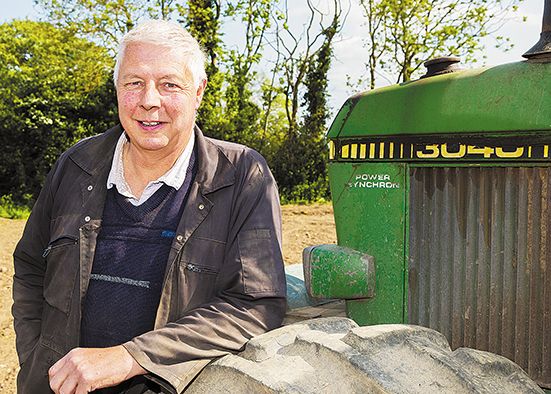Wettest weather on record causing concern for farmers
Wettest weather on record causing concern for farmers
8 May 2024

WHILE the district bathed in a brief spell of warm sunshine recently, the return of yet more rain has exacerbated fears that potato and grain harvests will be badly affected.
The wettest October, February and March on record has sparked major concern that late crops will result in reduced yields and higher consumer prices.
Saintfield farmer Robert Burgess says the evidence is clear that the rain-sodden ground is threatening domestic food production.
Although it’s the start of May, many farmers have been unable to take tractors into fields which resemble bogland instead of fertile agricultural ground.
Potato farmers and producers are predicting potential shortages and price rises as early planting has been curtailed – and it is the same for many cereal growers.
Mr Burgess, who is a leading Ulster Farmers’ Union figure, said waterlogged fields are not what any farmer or consumer needs.
Challenging weather conditions means he has only been able to sew 10 percent of his normal oats crop and he’s hoping for a significant improvement in temperatures.
Mr Burgess, who aims to sew 70 acres of oats, said the key thing for him is a continued dry spell, not necessarily a blazing hot summer.
“Yields could be down if the weather does not improve which will inevitably result in higher consumer prices,” he continued.
“The winter rainfall and indeed the deluges since the arrival of spring are taking their toll. There’s no doubt about that, but farmers are resilient and we’ll keep going.”
Mr Burgess said he would like a little rain when the oats are sewed, but would want a relatively long dry period after that.
“A 100-day dry spell is what I’m looking for but farmers know only too well that our weather pattern is now very unpredictable a lot of the time,” he continued.
“I would hope to harvest the oats by September or October at the very latest, but with a large swathe of his land lying idle, he wants to get seed sewn as soon as he can.
When is crop is harvested, the fruits of Mr Burgess’s labour will help provide the perfect start to the day for many as they enjoy their porridge for breakfast.
Mr Burgess said while he is struggling to sew, other farmers across the district already have their crops in the ground, revealing some of his colleagues in the Seaforde area are already “done and dusted” and now hoping for a good dry spell to allow the seed to germinate and grow.
“We are experiencing challenging times and many farmers are having to spend more on fodder for animals unable to return to waterlogged fields, while potato farmers are also up against it.
“It is very difficult to plan for unprecedented rainfall. It sets you back and there is not much you can do,” he added.
Last month, Donard Methodist Church in Newcastle hosted a workshop in support of a farming community that was experiencing exceptional pressures, often adversely affecting mental, physical and spiritual wellbeing, according to the minister, the Rev Dr Richard Wright.
He said the situation was as serious as most farmers could remember and was affecting every sector of agriculture.
In a directive from the Methodist Church President, the Rev David Turtle, said the rain had caused “disruption and loss” since last July.
“A large proportion of vegetables and potatoes were unable to be harvested last autumn, and these same producers now have no opportunity to plant this year’s crop,” he said.
“A much lower area of winter cereals than usual was able to be planted in the autumn and a proportion of that was has since failed. Even in traditionally ‘dry areas’ it has been too wet to plant spring cereals during recent weeks.”
The minister added: “All of this means that farmers and their families are facing huge financial, emotional and mental pressures.”


